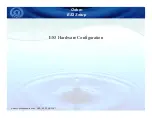Reviews:
No comments
Related manuals for Q6

7 Series
Brand: Daavlin Pages: 13

7 Series
Brand: Daavlin Pages: 27

PRO
Brand: Rangevision Pages: 31

6513
Brand: Parker Pages: 54

ES3
Brand: Odom Pages: 19

M205
Brand: MacDon Pages: 30

B100
Brand: Parker Research Corp Pages: 4

B100
Brand: Eastwood Pages: 20

WiseSpin CF-10
Brand: Daihan Scientific Pages: 43

Lab companion SI-300
Brand: Jeio tech Pages: 69

IP Video Test Option HST-3000
Brand: JDS Uniphase Pages: 4

JH Series
Brand: Jct Pages: 16

ActiveFinder One
Brand: LaserLiner Pages: 92

VL70-m
Brand: Yamaha Pages: 48

TG100
Brand: Yamaha Pages: 85

QY700
Brand: Yamaha Pages: 43

Midi XG MU100R
Brand: Yamaha Pages: 200

8-Lite Plus
Brand: Rainbow Colour Changers Pages: 22































